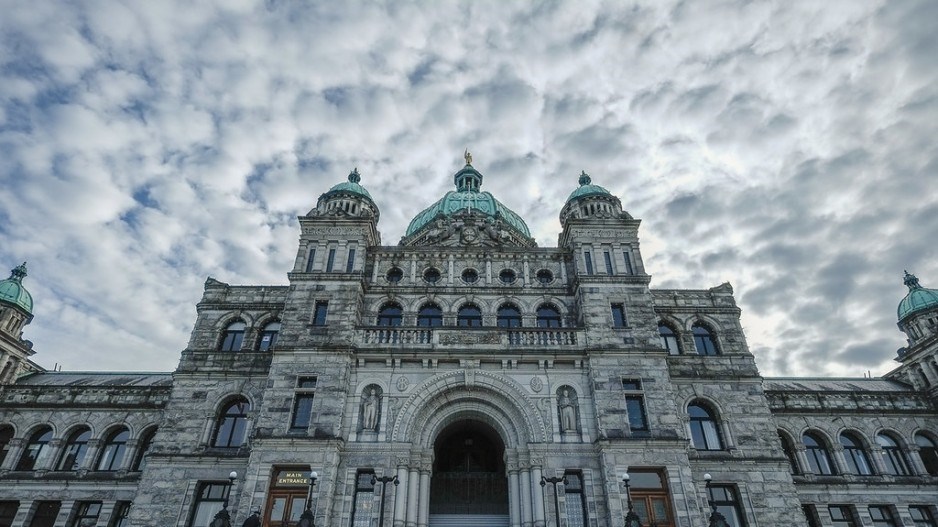British Columbians are not supposed to participate in a provincial election until the fall of 2024, but there has been plenty of movement on several fronts in the past six months.
The province held two by-elections that were easily won by the party in power. We also now have four official parties represented in the legislative assembly.
The latest survey conducted by Research Co. and Glacier Media shows that not much has changed at the top. Almost half of decided voters (48 per cent) would cast a ballot for the governing BC New Democratic Party (NDP) candidate in their constituency if an election were held today, up four points since February.
This leaves two parties fighting for second place: BC United at 20 per cent (down 16 points) and the BC Conservatives (19 per cent, up 17 points). The BC Green Party is now fourth with 12 per cent (down four points).
To fully understand the situation, we need to look at the entire electorate. In February, only 10 per cent of all respondents to our survey were undecided. This month, the proportion has increased to 18 per cent. Practically one in five voters simply do not know where to go, with a governing party that has had a premier for less than a year, an official Opposition party whose name could be perplexing and a third party that may be benefiting from the popularity of its federal namesake.
The data outlines challenges and strengths for all three opposition parties. The Greens cannot clear the 15-per-cent mark among voters aged 18 to 34 and aged 35 to 54, but are still the second most popular party on Vancouver Island. BC United has plummeted to 11 per cent among women, but remains ahead of other challengers among voters aged 55 and over. The BC Conservatives are starting to connect with younger residents, but have barely made a dent in Southern B.C.
At this stage, just over half of British Columbians (52 per cent, down seven points) approve of the way BC NDP leader Premier David Eby is managing his duties. The numbers are lower for BC Green leader Sonia Furstenau (36 per cent, down six points), BC United leader Kevin Falcon (29 per cent, down 15 points) and BC Conservatives leader John Rustad (25 per cent).
The rating for the two centre-right leaders is roughly the same and the public does not currently see either one as a saviour. When we asked British Columbians whether Falcon or Rustad is better suited for 12 tasks, overwhelming majorities choose neither or are not sure. For about one in four (24 per cent), Falcon is regarded as a superior leader to attract voters in Metro Vancouver while the same proportion feel Rustad will succeed in courting voters aged 55 and over. A lasting emotional connection with the electorate is yet to be established.
When British Columbians ponder BC United and the BC Conservatives merging into a single party before the next provincial election, 32 per cent welcome the thought, 43 per cent reject it and 25 per cent are undecided. Among those who voted for the Andrew Wilkinson-led BC Liberals in 2020, the level of support for establishing a new amalgamated party stands at 54 per cent. Those who cast ballots for the BC NDP and the BC Greens three years ago discard the prospect of a centre-right merger.
The province may have already said goodbye to what became a fascinating tidbit of political analysis in 2020 and 2021: The John Horgan-Justin Trudeau voter. These were British Columbians who were happy with the management of the COVID-19 pandemic at the provincial and federal levels. They had no problem supporting the BC NDP while eschewing their federal cousins, finding a home with the Liberals in Ottawa. Horgan is no longer premier, and Trudeau’s approval in B.C. stood at 35 per cent earlier this month, way lower than the 58 per cent he enjoyed in late 2020.
It will be up to Eby to maintain the support of voters who were happy with Horgan and may have voted for the BC NDP for the first time in 2020, especially now that – provided the BC Conservatives actually run candidates in every riding – here will be more options on the ballot.
The issue landscape provides a chance to see how parties can mobilize as the election draws near. Housing, homelessness and poverty is still the main concern (39 per cent, up five points), followed by health care (22 per cent, down seven points), the economy and jobs (12 per cent, down one point), crime and public safety (six per cent, up one point) and the environment (also six per cent, unchanged).
Political parties love to send fundraising emails and create memes that fixate on one figure or finding. The current state of affairs in B.C.’s politics is infinitely more complex. The increase in voting intention for the BC Conservatives is not accompanied by a significant level of identification with its leader. There is a marked decline in BC United’s standing among female voters. Right now, both of these parties have work to do if they wish to challenge the New Democrats in 2024.
Mario Canseco is president of Research Co.
Results are based on an online study conducted from Sept. 17-19 among 800 adults in British Columbia. The data has been statistically weighted according to Canadian census figures for age, gender and region in B.C. The margin of error is plus or minus 3.5 percentage points, 19 times out of 20.




